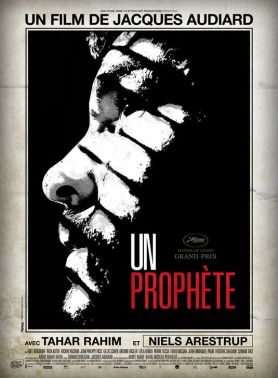Jeff, Who Lives at Home
The title of Jeff, Who Lives at Home announces a movie that must be a variation on a now common theme: that of the young male slacker in his late 20s and approaching middle age who somehow can’t manage to get off his parents’ couch and grow up, as generations past have done from necessity. This character shows signs of becoming the great comic archetype of our time, as the drunk was of the 1950s, and for the same reason — namely that he is a kind of cultural memento mori, a reminder to us all of what, even if we aren’t already, we might easily become. We laugh at him partly to put some distance between us, but he’s getting to be a very familiar figure. According to the U.S. Census Bureau, “In spring 2011, 5.9 million young adults age 25-34 (14.2 percent) resided in their parents’ household, compared with 4.7 million (11.8 percent) before the recession, an increase of 2.4 percentage points.”
Jeff
, the movie, belongs to a sub-genre of its kind in which the slacker meets the holy fool or demon lover. Others with a similar theme include Our Idiot Brother and Hesher and, perhaps, in another way, Cyrus of two years ago by the same auteurs, the Duplass brothers, Mark and Jay (Baghead, The Puffy Chair) who are loosely associated with the independent film movement known as “Mumblecore.” As I understand it, this is a term used to describe movies that seem to be not only about but by pot-smoking slackers. They look back to the original slacker, Richard Linklater, whose 1991 movie of that name first popularized the term. In Cyrus, the presence of a teenage son in loco parentis, as it were, to the love-life of his single mother, together with the weirdness of the son, played by Jonah Hill, gave the movie its edginess, but Cyrus himself turned out to be only slightly scary without being charismatic.
The Jeff of Jeff, Who Lives at Home, played by Jason Segel, reverses that formula. At first he seems just a big doofus. His brother, Pat (Ed Helms), calls him Sasquatch, and his size reminds us all the more of the contrast between his adult physicality and his childish mentality. But his claim on our attention comes from a weird blend, though perhaps within the limits of the normal for Baton Rouge, Louisiana, where he lives, of mysticism and moralism that expresses itself in an obsession with M. Night Shyamalan’s Signs (2002). That bit of schlock is all that Jeff has to cling to in his attempt to find the sign that will give meaning to a life blighted, as we are meant to understand, by the premature death of his father some 15 years previously. I wonder if there could be an allusion here to Hamlet? Certainly Jeff is as interested in, if not quite so acute about, ultimate questions as Shakespeare’s great prototype of the slacker youth. And Jeff, Who Lives at Home, unlike Hamlet, observes the Aristotelian unities of time, place and action (more or less).
Anyway, one day when Jeff answers the phone to a wrong number and is asked to speak to someone named Kevin, he suddenly takes it into his head that the name “Kevin” is the sign for which he has been waiting, and he embarks on what appears to be a madcap quest to find his destiny which — but then you know, more or less, what’s going to happen in the end, don’t you? Just as Jeff is complaining about “waiting forever to find out what your destiny is and then, when you do, it’s really not that exciting,” it gets that exciting. And when Mumblecore goes Hollywood and gives us the expected miracle, we may be left in some doubt as to whether the Duplasses are making fun of Mr Shyamalan or trying to follow in his footsteps.
As nearly as I can guess, they’re doing both. We may feel like saying, as Pat does to Jeff, “I wish that I could see the world like you. You have this belief in cosmic order. I really envy that.” And when that belief is vindicated, we as much as Pat are invited to come along for the ride. Moreover, compared to an Alien invasion, what happens to Jeff suggests a leap into reality for the newly-discovered meaning in his life, but in the end it proves to be a reality the movie would rather retreat from. For not only Jeff and his hardly more socially or economically functional brother but even their long-suffering mom (Susan Sarandon) get their miracles — albeit miracles of an everyday sort — and such over-egging of the pudding is presumably meant to keep us from taking anything of what happens here too seriously.
In other words, this is a fairy tale translated into the unfamiliar language of slacker comedy which aspires to leave us with what ought to be a highly serious Moral Message — but, then again, maybe not. High seriousness, as the Duplasses remember almost too late, doesn’t work in movies like this. The laughter they’re getting better and better at generating acts as a kind of permission for us to disregard the meaning Jeff ultimately finds in his hitherto pointless and random existence, but that meaning remains an awkward presence nonetheless, which many will prefer to ignore. That neither Jeff himself nor his family, presumably, will want to ignore it means that they are left imprisoned in the fairy tale while we are likely to treat it, like the Moral Message, as merely disposable. It’s a sad fate for these people whom we have almost learned to like.
Discover more from James Bowman
Subscribe to get the latest posts to your email.







